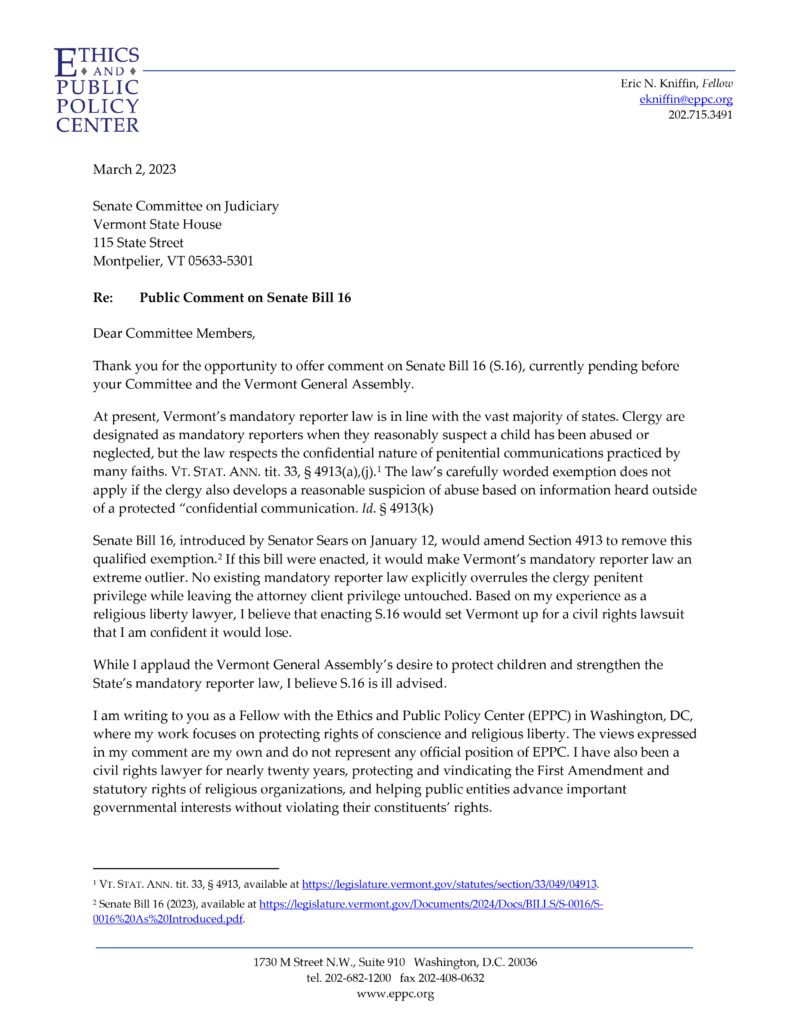
Published March 2, 2023
On March 2, Fellow Eric N. Kniffin of the HHS Accountability Project submitted a memo to the Vermont Senate Committee on the Judiciary offering comment on Senate Bill 16 (S.16):
While S.16 would affect many religious traditions, the Catholic Church’s size and its much-publicized child abuse crisis usually place it at the center of debates over child sexual abuse and the clergy penitent privilege. As such, my analysis in the attached memorandum focuses on how this bill would affect Vermont Catholics, and why the State does not need to intrude on a Catholic sacrament in order to protect its citizens. Though I focus on the Catholic Church here, the general rationale and particularly the legal arguments set out in the memorandum’s final section would apply to other religious traditions as well.
The memorandum focuses on five major points:
- The Catholic Church in the United States and in Vermont is committed to preventing and reporting child abuse;
- The absolute confidentiality of what is said in the confessional is a longstanding and fundamental part of a Catholic sacrament;
- The clergy penitent privilege is not “loophole”—it is a venerable part of our legal system, and there is no evidence that the seal of the confessional has contributed to the sexual abuse crisis in the Catholic Church;
- No existing mandatory reporting law directly attacks the Catholic Church’s sacraments as would S.16, and
- A mandatory reporting law that eliminates the clergy penitent privilege would likely be found unconstitutional.
Eric Kniffin is a fellow at the Ethics and Public Policy Center, where he works on a range of initiatives to protect and strengthen religious liberty as part of EPPC’s HHS Accountability Project.












